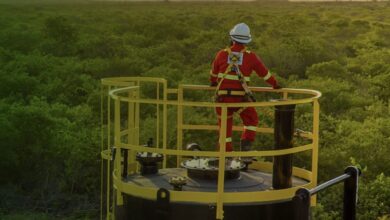Chevron Thailand promotes focus on planning for safe, efficient and consistent performance
By Katie Mazerov, contributing editor

In its mission to ensure consistently safe, efficient and reliable well construction, Chevron Thailand has implemented Clear Leader Advantage (CLA) workshops that focus on planning, building skill sets and teamwork and applying lessons learned to future operations. “Our focus on planning means we understand our people, how they behave and how to communicate with them,” Rob Weakley, Thailand drilling and completions manager for Chevron Thailand, said in a keynote address at the 2013 IADC Critical Issues Asia Pacific Conference, 20-21 November in Bangkok.
“The CLA workshops are all about improving operational efficiency and safety in becoming a high-reliability organization,” he continued. “They are designed to develop, establish and sustain a culture that will utilize a simple but effective workflow for consistently planning, briefing, executing and debriefing our work, capturing lessons learned that pass on critical information to keep our people safe and make our work more reliable and efficient. We call this operational discipline,” he said.
Every meeting opens with a discussion of one of the company’s 10 tenets of operation, such as how to operate within design and environmental limits. Other tenets address safety, abnormal conditions, procedures for high-risk or unusual situations and meeting customer requirements, among others.
Quarterly CLA workshops, which are three-day sessions with rig managers, operations managers and business partners, including service companies, are designed to foster consistency in best practices through deliberate leadership and teamwork. “We bring in coaches who provide training on the planning process, and then we engage our personnel together to ensure the workforce is doing every task the right way, every time,” Mr Weakley said. “In coaching, we try and give people experiences so they can change what they believe about the various processes. Then they can change what they do,” he added.
Operational discipline also relies on using checklists to ensure multiple layers of protection are in place. Chevron Thailand designed a tool to help its employees go through a simple checklist that covers design, maintenance, procedures and pre-job processes, training and competency and behaviors. “Checklists make sure we don’t miss any critical steps,” Mr Weakley said. Items covered include equipment specifications, preventive maintenance schedules and hazard identification. If a worker does not know or understand something on the list, a conversation with a supervisor is needed.
“We try to use the checklist approach for everything we do,” he continued. “We must do things in the same order every time. We’re a factory drilling operation in Thailand, so it is easy for people to become complacent in doing a lot of repetitive work on carbon copy wells. But if we’re very consistent about how we do things and disciplined in the order by which we cover things, the workforce will eventually get to the point where it recognizes when a step is skipped,” he added.
The pre-job process checklist is a five-step “Stairway to Efficiency” that starts with a plan identifying and mitigating hazards and risks and confirming that all 10 operational tenets can be honored. The briefing step confirms understanding of the plan and what might be changing. Knowing how to communicate with various personality types is critical, Mr Weakley said. “Because we’re always working with a different mix of people, if we want to be successful, we must satisfy everyone’s information needs to make sure they understand the plan,” he said. Chevron presents critical information as both a detailed list and through pictures to cater to different personality types.
Execution means following the plan with precision and excellence. If one thing changes, the job is stopped and the plan is revisited. Debriefing is designed to capture lessons learned and make the plan better for the next operation. “When we’re on the way to perfection, safety is one of the byproducts. Safety, reliability and efficiency are all achieved through planning, learning, building teams and working smarter, not faster,” Mr Weakley said.




